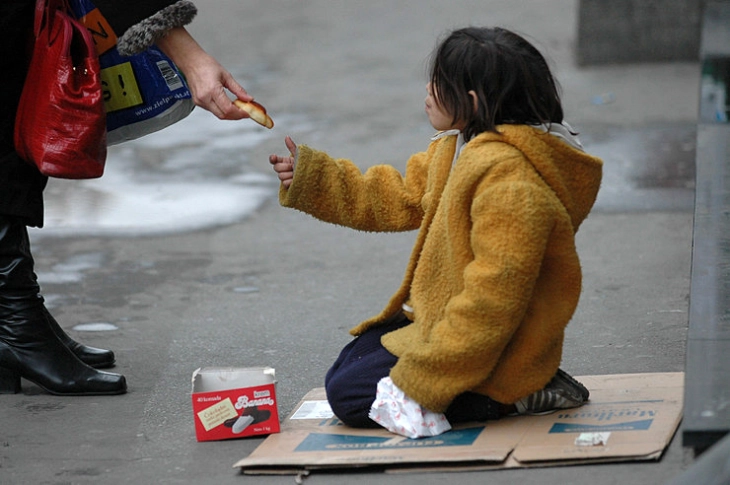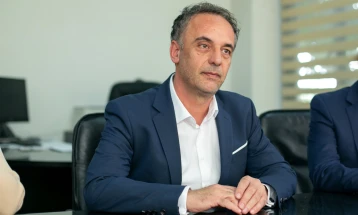UNICEF: Every third child in the country lives in poverty
- On International Day for the Eradication of Poverty, UNICEF calls for expansion of child benefits and a multi-sector response to halve child poverty by 2030.

Skopje, 17 October 2024 (MIA) - On International Day for the Eradication of Poverty, UNICEF calls for expansion of child benefits and a multi-sector response to halve child poverty by 2030.
Over 120,000 children in the country – or 32.8 per cent of all children - live below the national poverty line according to data published by the State Statistical Office this month. The child poverty rate is 50 per cent higher than in the adult population (22 per cent), and has increased from 28 per cent in 2015 to 32.8 per cent in 2021, highlighting that children have been left out of the country's economic development.
"This is alarming as children are more vulnerable to the effects of poverty. Poverty in childhood affects all aspects of life and can have lifelong consequences for children’s physical, cognitive, and social development, and has a high cost for the country’s human capital and prosperity. Recognizing this, in 2015 signing-up to the Sustainable Development Goals, the country made a firm commitment to reduce by at least half the proportion of children living below the national poverty line by 2030," UNICEF's Skopje office said Thursday.
Significant underinvestment in social protection has contributed to persistent gaps in coverage for children in the country. Public expenditure on social protection lags behind other sectors and is well below the European Union average. Today less than 23 per cent of households with children in North Macedonia receive child or family cash benefits while the average in the EU stands at 88.4 per cent.
Among the key opportunities to address child poverty is the expansion of the coverage and improving the adequacy of cash-benefits for children living in poor families. This could include expanding the educational allowance to also cover pre-school, critical to build skills children need to succeed later in life; improving outreach and support to enable families access benefits which they are entitled to; and aligning child-focused cash benefits with real costs of living.
"The country could also consider introducing a universal child-benefit, which globally has shown to be affordable even in times of crises and is an effective policy to address both overall poverty and in particular child poverty and well-being. A universal approach – cash benefit for every child – drastically reduces administrative costs, exclusion errors and risks of stigma and discrimination, while building and sustaining social cohesion and reducing inequality," said UNICEF.
In addition to improving cash-transfers to families with children, addressing child poverty also calls for a multi-sectoral response to ensure that children have access to basic social services, including education, healthcare, nutrition, and protection, in a non-stigmatizing and non-discriminatory manner. This includes introducing universal health insurance coverage for every child; meaning not to condition child health insurance to parent’s insurance status; expanding access to early childhood education, crucial for future life outcomes and a proven policy to address inter-generational poverty; implement programs to reduce student dropout rates and support the inclusion of children with disabilities and those outside the educational systems, and increasing the availability and quality of social services such as parenting support services and other family-centred support and child protection interventions.
The theme of this International Day for the Eradication of Poverty - “Ending Social and Institutional Maltreatment” - reminds of the need for deliberate efforts to address challenges that vulnerable groups, including Roma, children living with single parents and children with two or more siblings, have in accessing benefits and essential services, said the press release.
Designing policies and evaluating their effectiveness also requires regular measurement of poverty and disaggregated data. Investment in the capacities of the national statistical system is critical to generate timely reports covering both monetary poverty and social exclusion.
Social protection is a powerful accelerator for child rights and national development. The Government, has committed in its programme to reduce poverty and increase the benefits for the most vulnerable groups, including children and persons with disabilities. By expanding social protection for children, the Government can also deliver on its priority to accelerate and sustain economic growth, a higher standard of living, and quality of life for citizens.
UNICEF said it stands committed to support the Ministry of Social Policy, Demography and Youth led efforts, ensuring every child has the chance at a healthy, productive future.
MIA file photo







